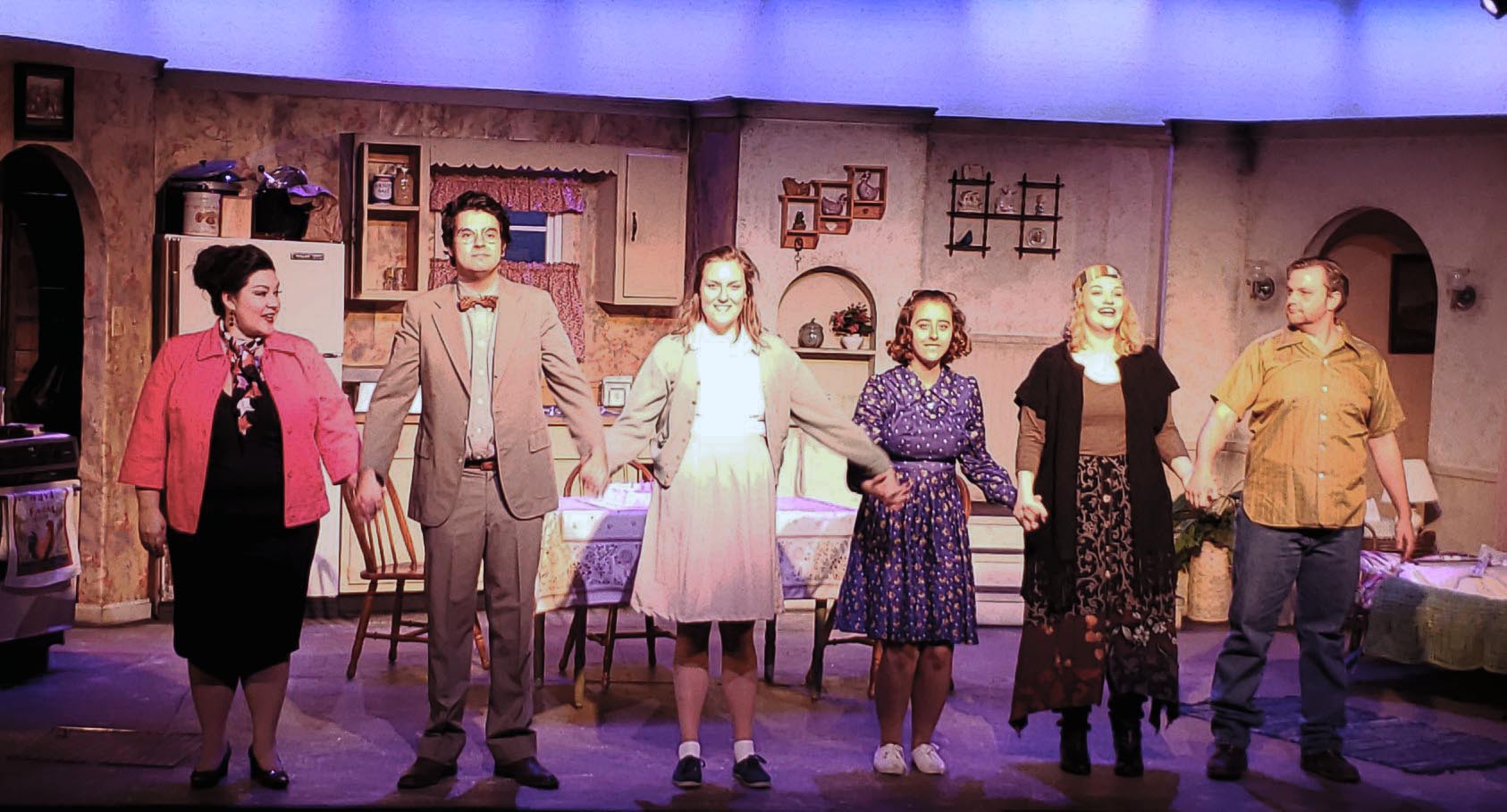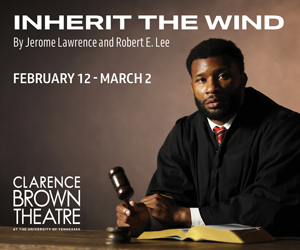The tradition of Southern Gothic literature from Faulkner, O’Connor, Cormac McCarthy, Tennessee Williams, and many others, runs deep in our consciousness, throwing open the shutters and exposing the dusty rooms of cultural decay, and the dusty lives of those that hide behind false honor, desperation, and failed aspirations. Adding comedy to the quiet pathos of Southern Gothic, however, has not always been easy for novelists and playwrights keen on avoiding the pitfalls of cheap character mockery.
Playwright Beth Henley, a native of Jackson, Mississippi, understood the fine line that one must walk between comedy and tragedy in her play, Crimes of the Heart, a work that won her the Pulitzer Prize for Drama in 1981 and that has had regular productions ever since. One of those productions now belongs to Flying Anvil Theatre and their excellent current staging—directed by Jayne Morgan—that opened last weekend for a run through March 24.
Like any black comedy—Southern or otherwise—Crimes of the Heart is a stew of comic ingredients bubbling in a tragic broth. Centered on the three McGrath sisters in Hazlehurst, Mississippi, who are “having a bad day, a very bad day”, the play flows like a photo album that begins innocently enough, but reveals more and more comically tragic situations as one turns each page. The eldest sister, Lenny (Meg Sutherland), is having her 30th birthday, alone, pathetically singing Happy Birthday to herself with a candle stuck into a cookie, all the while riddled with unease over her siblings and weighed down by her husband-less life. The middle sister Meg (Danielle Pressley), hiding behind a failed singing career that has precipitated a nervous breakdown, has been called home from Hollywood to deal with the situation in which the youngest sister Babe (Gray Casterline) has shot her abusive lawyer husband in the stomach because she “didn’t like his looks.” Of course, all of this is happening in the context of the family patriarch, Ole Grandaddy, fading away in the hospital from a stroke, and the news that Lenny’s 20-year-old horse, Billy Boy, was just struck and killed by lightning. Floating like an undercurrent in this family stew is the history of the sisters’ mother committing suicide years earlier under the strangest of circumstances.
Clearly, one of the many attractions of Crimes of the Heart is that it is a notable vehicle for three women as the McGrath sisters who can create not only dramatically distinctive personalities for their characters, but somehow make the entire set of odd circumstances seem credible and logical. With Morgan’s direction and her signature attention to dramatic rhythm, the personalities come to life in the hands of Sutherland, Pressley, and Casterline. One actually cheers for Sutherland’s wonderfully sympathetic Lenny to shake off the layers of ennui and self-deprecation, and take a stab at controlling her own happiness. On the other hand, there is little sympathy for the character of Meg. Pressley has painted her Meg with some delicious metaphorical warts, the result of teenage selfishness becoming full-blown adult self-indulgence. In the role of Babe, Casterline kept her character fully on the comically ambiguous side, with naïveté, guilelessness, and questionable nutty behavior, clouded by what is suggested to be a reaction to spousal abuse.
Haunting the sisters is their first cousin, Chick, performed with an energetic and descriptive flow of southern gossipy-ness by Kara Van Veghel. Chick is a domineering woman driven and embarrassed by the family’s past and present, a history that interferes with her own small-town society goals.
A man from Meg’s infamous dating past, Doc Porter (Brad Stapleton), reenters her life, at least for one night of meaningless gratification. Babe’s attorney, the just-out-of-law-school Barnette Lloyd (John Simmins), is drawn from exactly how one has been taught to view southern lawyers: a light-colored suit, glasses, well-mannered attorney dialect, and the inevitable hidden agenda. In this case, Simmins allows Lloyd’s agenda to reveal itself slowly and methodically: he is attracted to Babe and he has a “vendetta” against Babe’s now-wounded husband, Zachary Butrelle. I do declare.
With characters painted so colorfully by director Morgan and her cast, I found myself longing for a bit more revealing character in the Southern Gothic visual environment from this production of Crimes of the Heart. It’s a myth that comedy has to be uniformly bright; some of comedy’s best friends are strategically placed shadows and altered focus. Nevertheless, Flying Anvil Theatre’s Crimes of the Heart walks us through a pleasantly bizarre House of Mirrors where we are very likely to see ourselves reflected in ways we can laugh at, no matter what happens. After all, in the grand tradition of southern optimism, “tomorrow is another day.”







